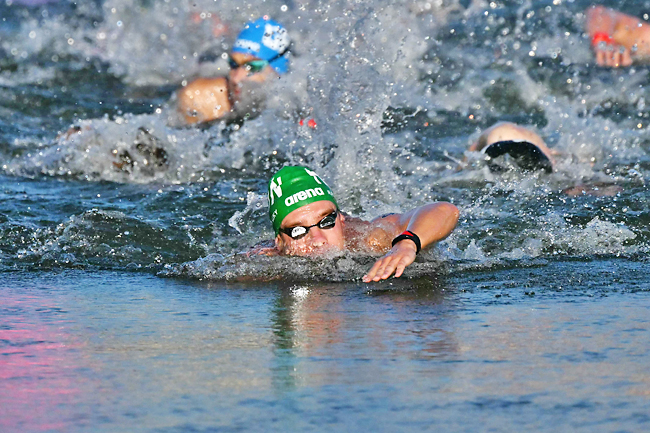PARIS (AP) – There were plenty of concerns about swimming in the long-polluted Seine River.
When the final gold medal was handed out yesterday, everyone seemed thrilled to have taken a nearly two-hour dip in the the iconic waterway.
Kristóf Rasovszky of Hungary wrapped up Olympic events in the Seine by winning the men’s 10-kilometre marathon race, a triumph for organisers who undertook a massive project to clean up a river where swimming had been banned for nearly a decade because of toxic water.
“The only reason I wanted to do open water was because I wanted a photo next to the Eiffel Tower,” quipped Irish star Daniel Wiffen, who competed in an open water event for the first time in his career.
Indeed, the course through the heart of one of the world’s most glamorous capitals provided a backdrop that won’t soon be forgotten by anyone who experienced it.

The Eiffel Tower dominated the skyline. The gold-domed Invalides glimmered in the morning sun on a breezy morning. The ornate Pont Alexander III provided an overlook of the starting buoy and finishing chute.
Thousands of fans lined both sides, cheering on swimmers who were almost close enough to touch on the return leg of each 1.67-kilometre lap as they hugged the shoreline to avoid the river’s current as much as possible.
Rasovszky set the pace most of the race and held off Germany’s Oliver Klemet in an all-out sprint to the finish. The winner touched in 1 hour, 50 minutes, 52.7 seconds, with Klemet 2.1 seconds behind.
Rasovszky settled for silver in this event at the Tokyo Games. Now, he’s got a gold, which is sure to set up a raucous celebration when he returns to Hungary.
“I don’t think I’m ready for it,” he said, beaming. “But let it come.”
The bronze went to another Hungarian, David Betlehem, who was one of the most vocal opponents of competing in the Seine. He slapped the finishing pad just six-tenths of a second ahead of Italy’s Domenico Acerenza.The Hungarians were able to train in the Danube River back home, giving them a good feel for the strong current they faced in the Seine.
“It was a really good preparation for how to swim in a river and made a really good advantage for us,” Rasovszky said.
In retrospect, Betlehem has no complains about the water quality, though he planned to take a swig of Pálinka – a traditional fruit drink from his homeland – to help ward off any potential health problems.
“I didn’t want to do it because of the water quality,” he said. “But after the women’s race, like nobody was sick. My girlfriend swam and she was okay. We need to win a medal.”



















































